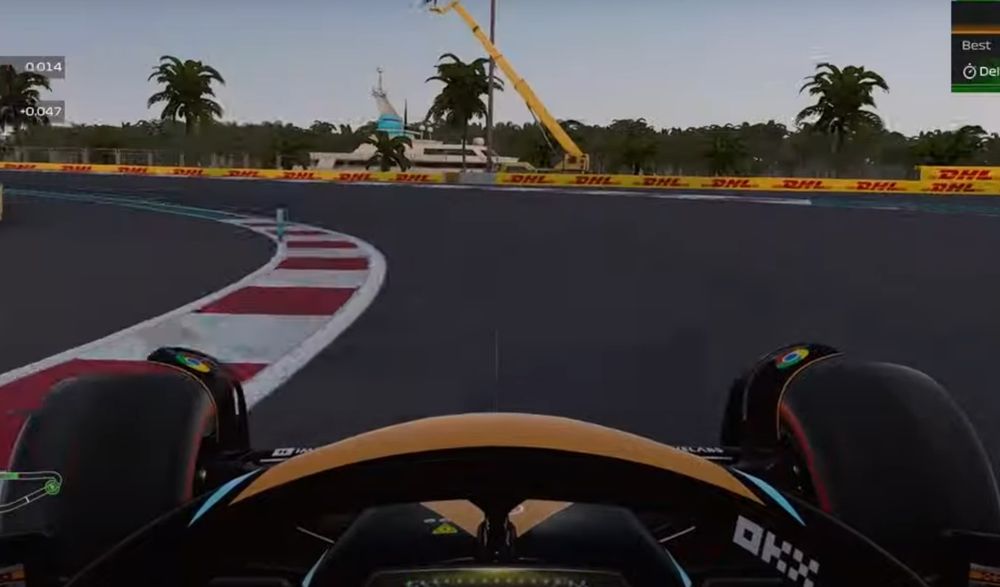Welcome to the adrenaline-pumping world of Formula 1 racing! As we approach the thrilling finale of the F1 season at the iconic Yas Marina Circuit, every racer’s dream is to cross the finish line first. Struggling to master the complex turns and optimize each lap? Our comprehensive FF1 24 Abu Dhabi setup guide is here to catapult you to victory.
TL;DR: Quick Guide Highlights
- Discover the optimal aerodynamics settings for Yas Marina’s unique layout.
- Learn the transmission secrets for maintaining stability and agility on the track.
- Adjust your suspension and brakes to navigate the circuit’s tricky corners like a pro.
- Optimize tyre pressure for maximum performance throughout the race.
- Explore advanced adjustments for seasoned racers seeking an extra edge.
Introduction to F1 23 Abu Dhabi Setup
The Yas Marina Circuit, renowned for its challenging layout and status as the final showdown of the Formula 1 season, requires racers to be at their best. The circuit features a blend of high-speed straights and demanding corners, similar to the technical circuits of Mexico or Spain. With F1 24 on the horizon, now is the perfect time to sharpen your skills with our updated setups.
Aerodynamics
For the aerodynamics setup in Abu Dhabi, we recommend a front wing angle of 32 and a rear wing angle of 28. This configuration ensures optimal downforce for cornering without sacrificing the slipstream effect on the straights.
Transmission
Setting the on-throttle differential to 52% and the off-throttle to 50% balances stability during acceleration with sufficient rotation in corners. This setup is crucial for maintaining control throughout the race.

Suspension Geometry and Setup
A negative camber of -2.50 at the front and -1.00 at the rear helps maintain speed on Yas Marina’s long back straights. The toe settings of 0.03 at the front and 0.14 at the rear enhance agility in slower corners, aiding in quick direction changes.
Brakes and Tyres
We use a 100% brake pressure with a 55% front bias to ensure robust stopping power at critical corners. For tyres, set the front pressure at 23.1 PSI and the rear at 20.4 PSI to keep them within the ideal temperature range, crucial for enduring Yas Marina’s demanding conditions.
Advanced Adjustments
For those seeking to refine their setups further:
- Adjust wing levels to improve top speed and stability during high-speed changes.
- Experiment with differential settings to enhance low-speed stability.
- Modify suspension stiffness and brake bias on the fly to adapt to changing track conditions.
- Consider tyre pressure adjustments for shorter races to optimize performance from the start.
Personal Insights and Uncommon Approaches
Having raced virtually at Yas Marina countless times, experimenting with various setups has revealed that subtle tweaks can significantly impact performance. For instance, a slight increase in rear toe can dramatically enhance stability in the final sector, where precision is paramount. These insider tips could be your key to mastering Yas Marina.
Conclusion
Implementing the right setup in F1 24 can be the difference between a podium finish and a middle-of-the-pack result. Our guide aims to provide you with a competitive edge at Yas Marina, ensuring you’re well-equipped to take on the challenges of this complex circuit.
FAQs
What is the best aerodynamic setup for Yas Marina in F1 24?
We recommend a front wing angle of 32 and a rear wing of 28 for a balance of speed and control.
How should I adjust my transmission settings for Abu Dhabi?
Try a 52% on-throttle and 50% off-throttle setting for balanced acceleration and cornering.
What are the ideal brake settings for the Yas Marina Circuit?
Opt for 100% brake pressure with a 55% bias towards the front to tackle the circuit’s sharp turns effectively.
How do tyre settings affect performance in Abu Dhabi?
Proper tyre pressure, like 23.1 PSI at the front and 20.4 at the rear, ensures optimal performance by maintaining the ideal temperature range.
Can setup adjustments help in online races?
Yes, small adjustments like increasing tyre pressure can improve tyre warm-up times, giving you an edge in shorter, more competitive online races.

